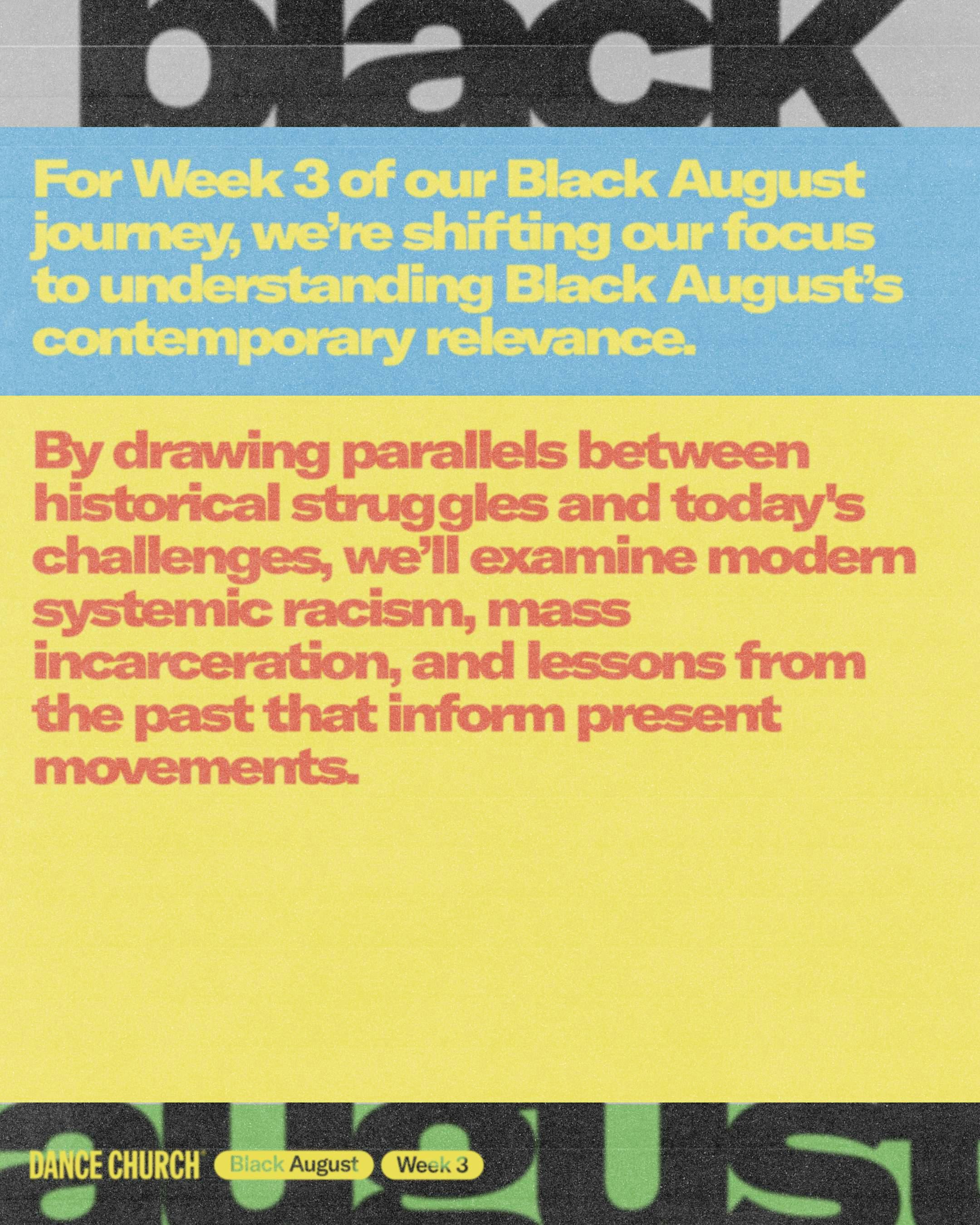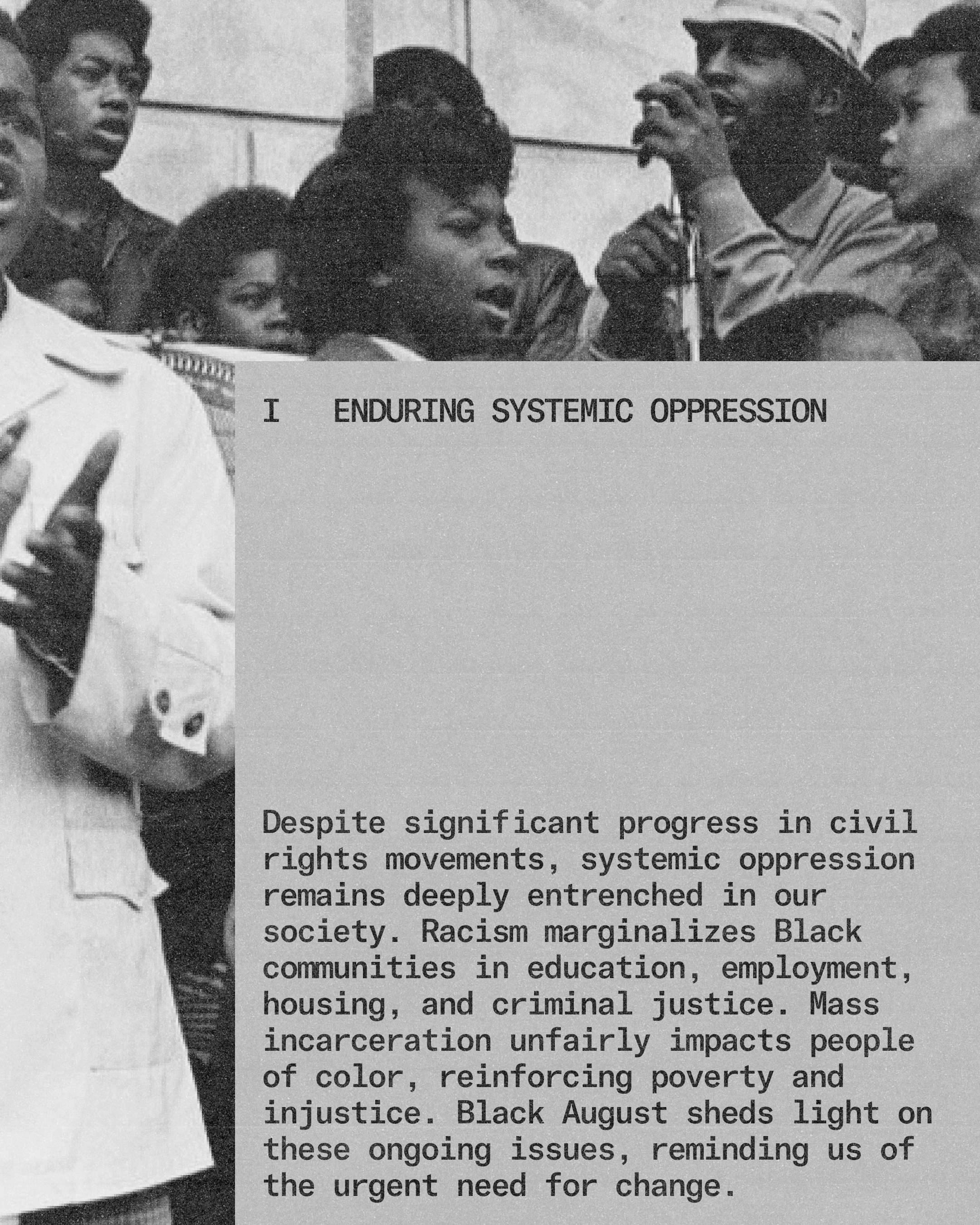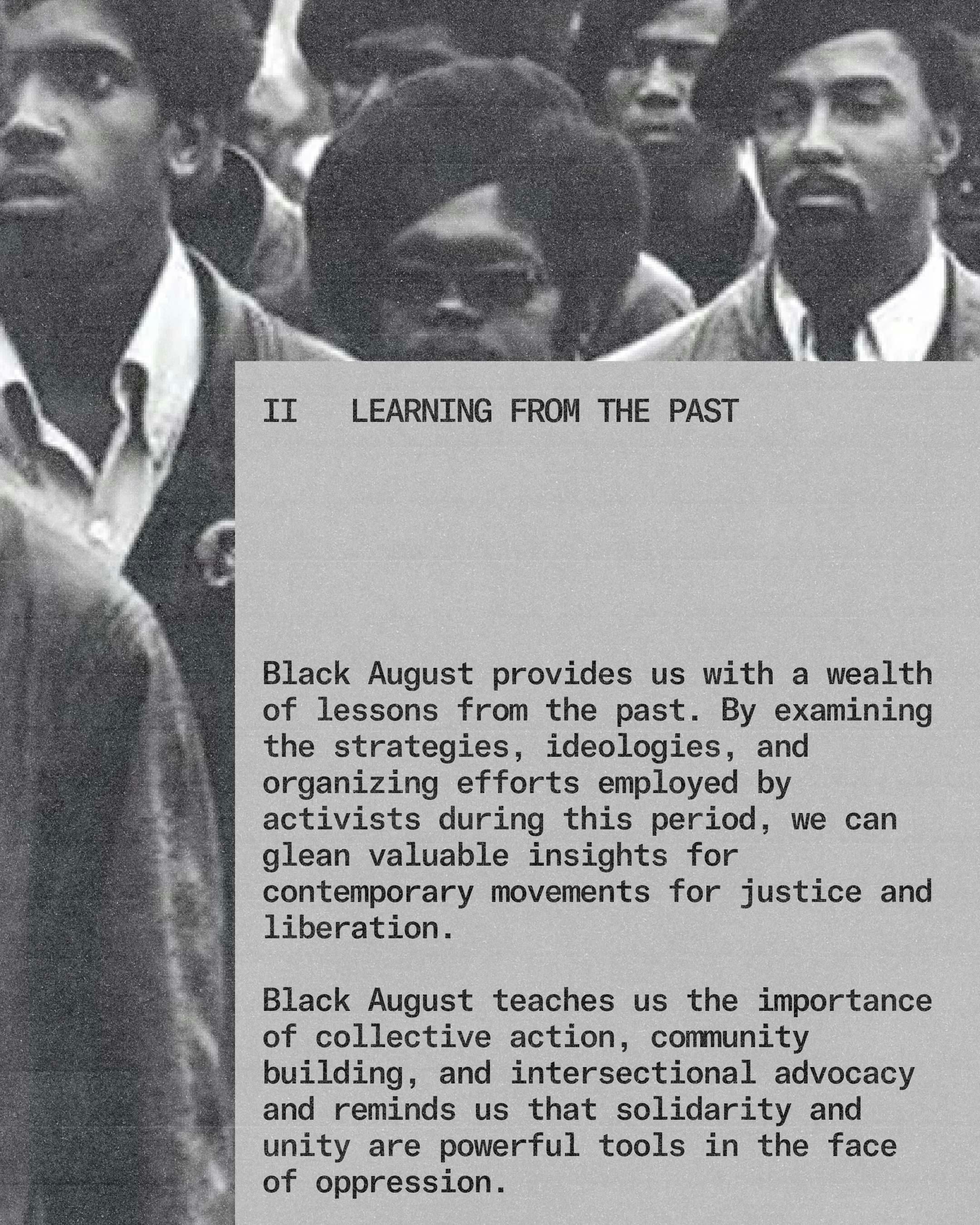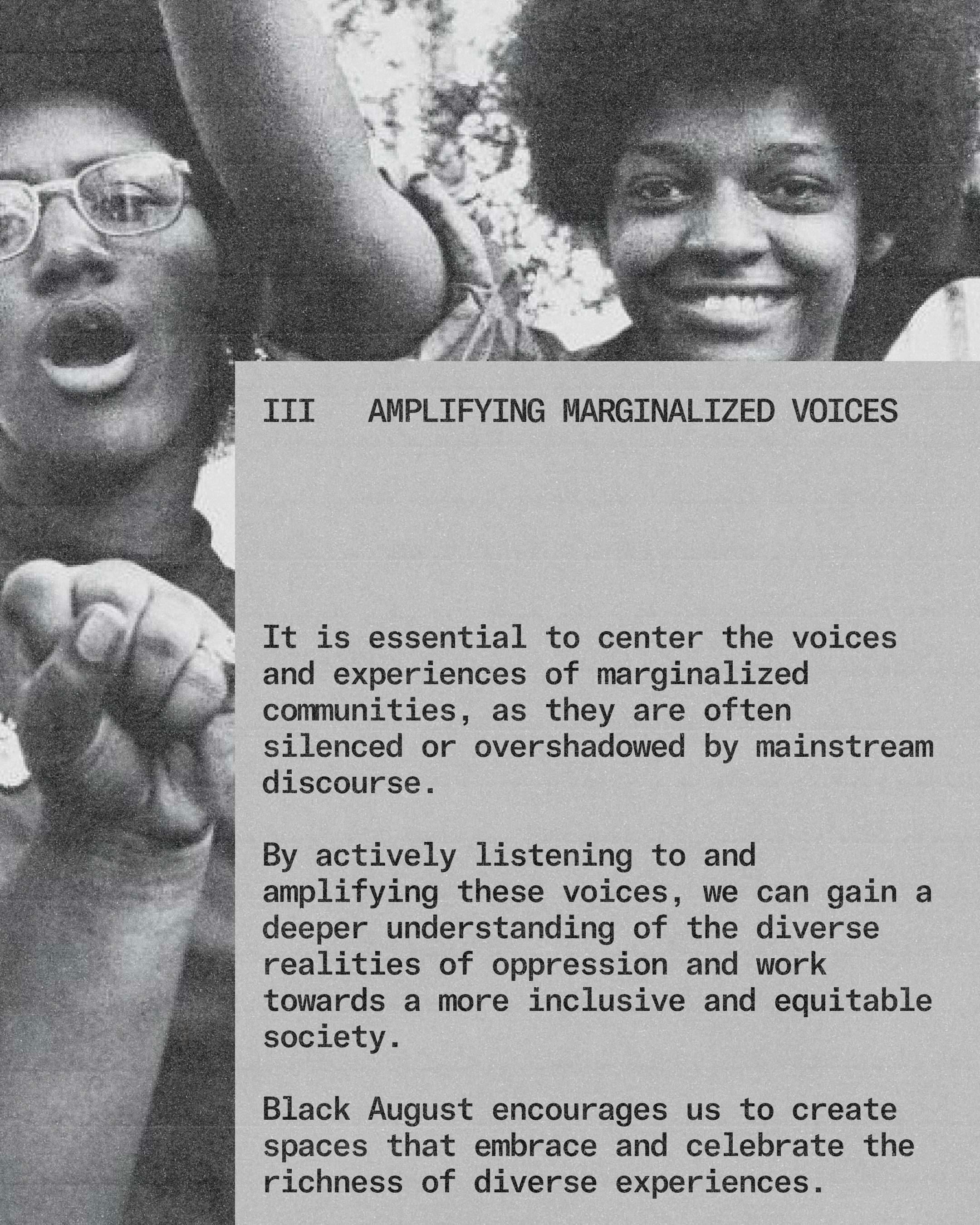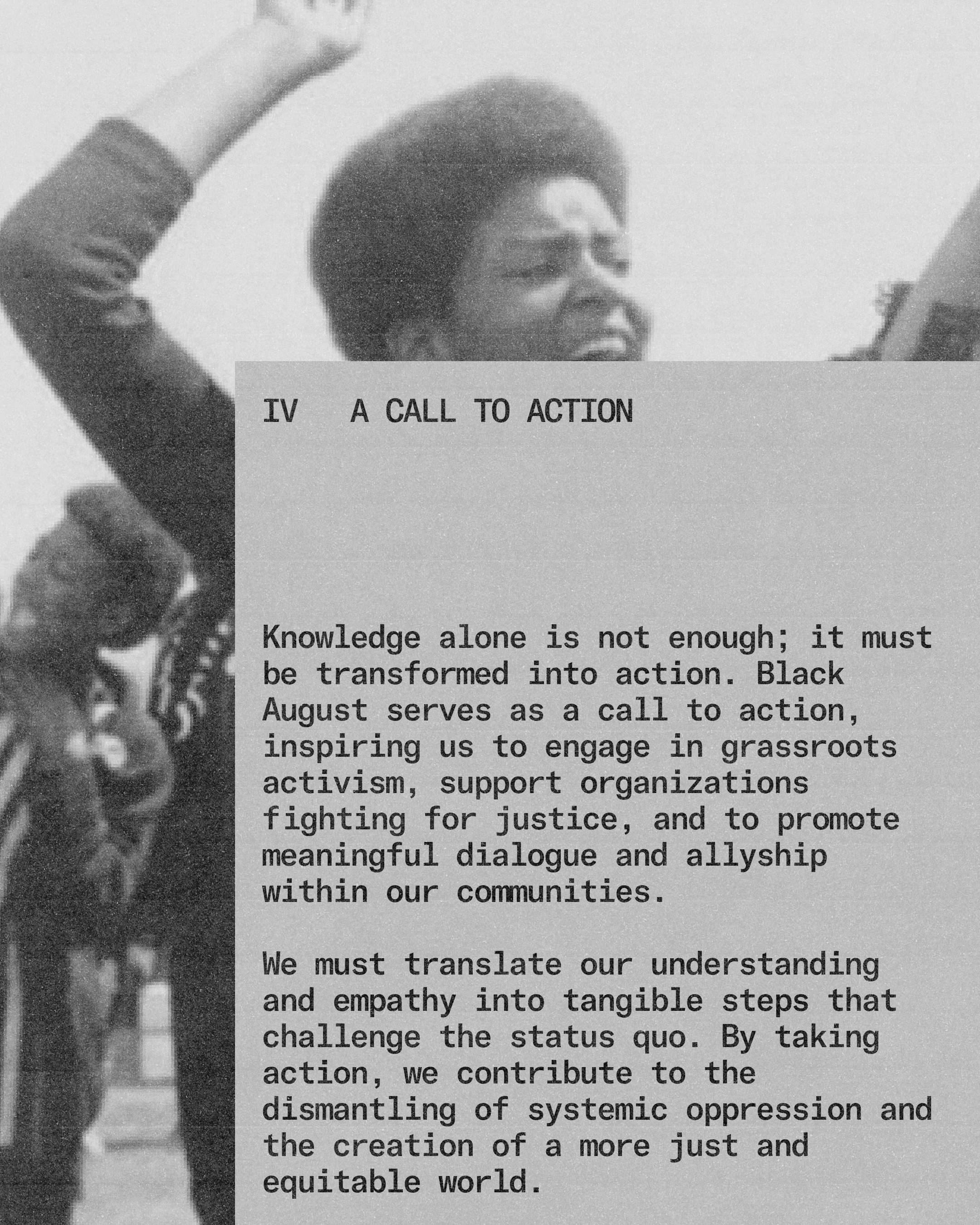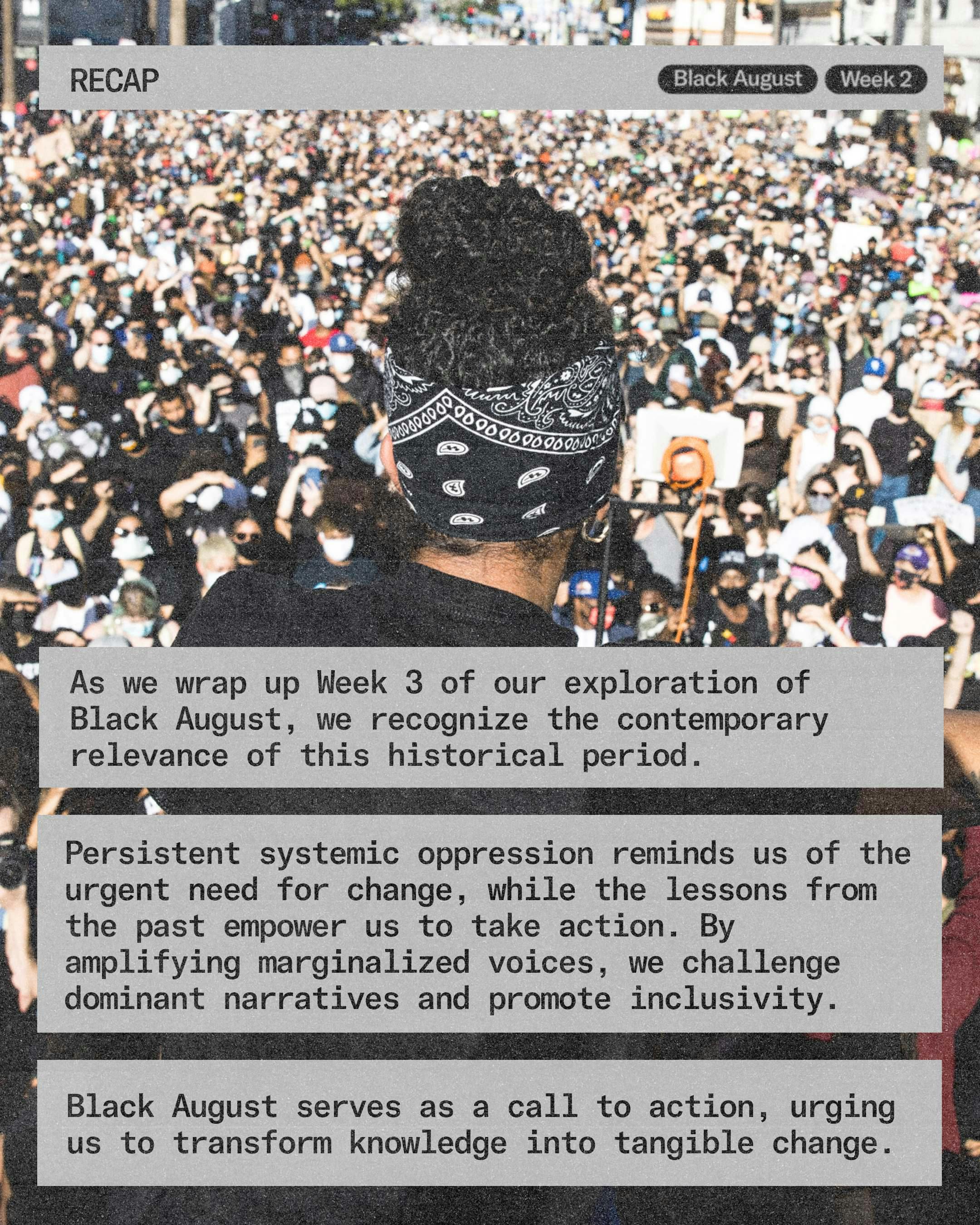Aug 15, 2023
Black August Week 3
Honoring the Past, Inspiring the Future
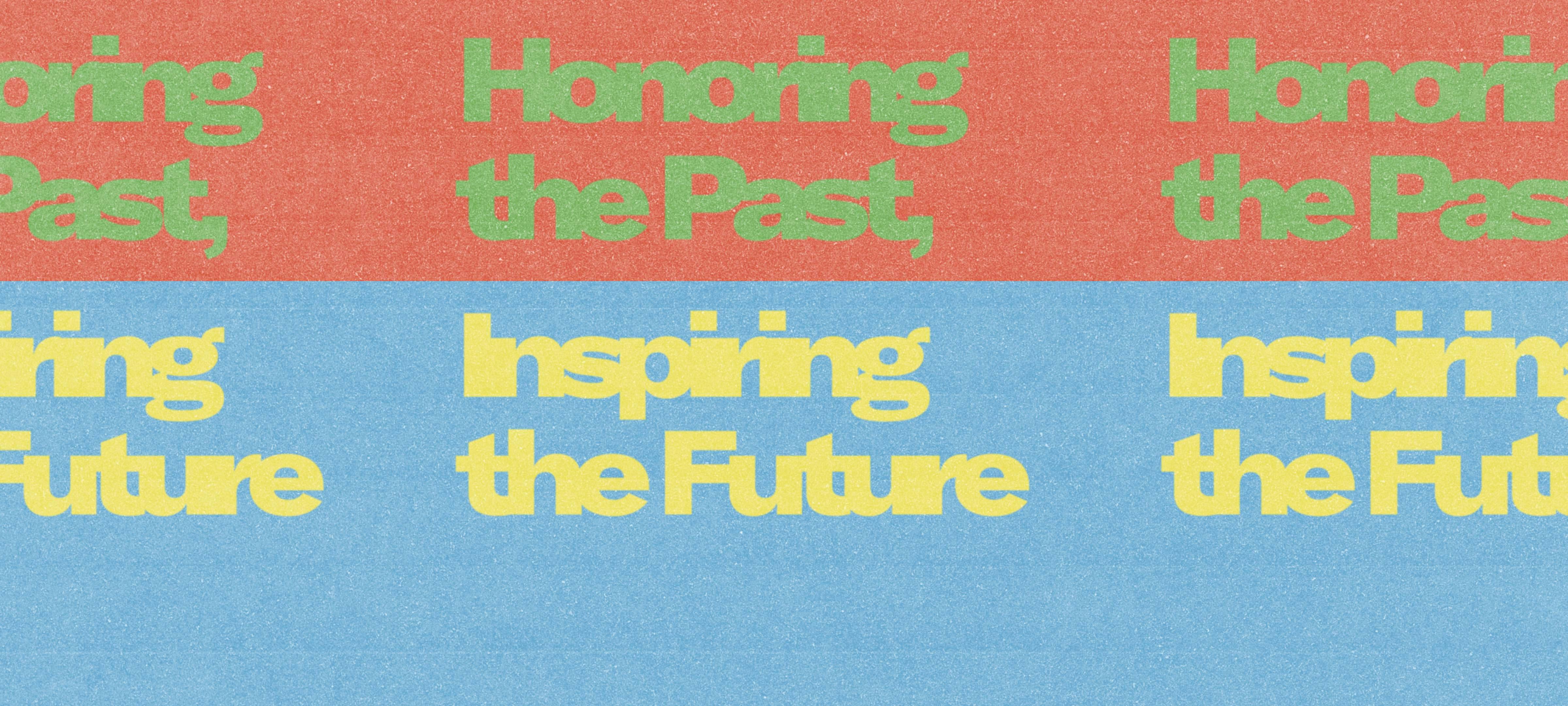
Introduction →
As we delve into Week 3 of our exploration of Black August, we shift our focus to understanding its contemporary relevance. By drawing parallels between historical struggles and present-day challenges, we gain valuable insights and inspiration for our ongoing fight against systemic oppression. In this blog, we will examine the persistent existence of systemic racism, mass incarceration, and other forms of oppression in modern society. We will also explore the lessons from the past that inform our present-day movements for justice and liberation. Furthermore, we will discuss the importance of amplifying marginalized voices and transforming knowledge into action. By studying Black August, we equip ourselves with the tools needed to effect positive change and create a more just and equitable future.
Persistent Systemic Oppression →
Despite significant progress in civil rights movements, systemic oppression remains deeply entrenched in our society. Systemic racism continues to marginalize and oppress Black communities, perpetuating inequalities in areas such as education, employment, housing, and criminal justice. Mass incarceration disproportionately affects people of color, further perpetuating cycles of poverty and injustice. It is crucial to study Black August as it sheds light on these ongoing issues, reminding us of the urgent need for change. By acknowledging the persistence of these challenges, we are better equipped to address them effectively.
Lessons from the Past →
Black August provides us with a wealth of lessons from the past. By examining the strategies, ideologies, and organizing efforts employed by activists during this period, we can glean valuable insights for contemporary movements for justice and liberation. Black August teaches us the importance of collective action, community building, and intersectional advocacy. It reminds us that solidarity and unity are powerful tools in the face of oppression. By learning from the past, we can build stronger, more effective movements in the present and future.
Amplifying Marginalized Voices →
Studying Black August allows us to challenge dominant narratives and uplift marginalized perspectives. It is essential to center the voices and experiences of marginalized communities, as they are often silenced or overshadowed by mainstream discourse. By actively listening to and amplifying these voices, we can gain a deeper understanding of the diverse realities of oppression and work towards a more inclusive and equitable society. Black August encourages us to create spaces that embrace and celebrate the richness of diverse experiences.
Black August as a Call to Action →
Knowledge alone is not enough; it must be transformed into action. Black August serves as a call to action, inspiring us to engage in grassroots activism, support organizations fighting for justice, and promote meaningful dialogue and allyship within our communities. We must translate our understanding and empathy into tangible steps that challenge the status quo. By taking action, we contribute to the dismantling of systemic oppression and the creation of a more just and equitable world.
Conclusion →
As we wrap up Week 3 of our exploration of Black August, we recognize the contemporary relevance of this historical period. Persistent systemic oppression reminds us of the urgent need for change, while the lessons from the past empower us to take action. By amplifying marginalized voices, we challenge dominant narratives and promote inclusivity. Black August serves as a call to action, urging us to transform knowledge into tangible change. In Week 4, we will provide actionable steps and resources for individuals to continue their engagement beyond this month of commemoration. Together, let us honor the past, inspire the future, and work towards a more just and equitable society.
